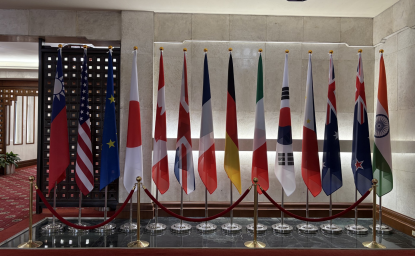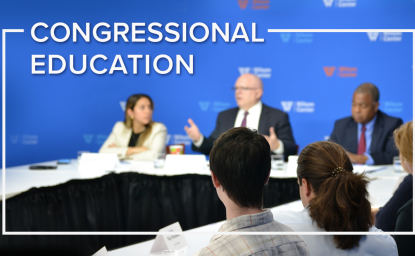American policymakers are understandably occupied with the situations in North Korea and Iraq. But as we face these threats, we must not be distracted from combating al Qaeda, an organization that – unlike North Korea and Iraq – is engaged in open warfare with the U.S. and its allies. Al Qaeda’s power and reach have been curtailed, but the war against it is far from over.
We have succeeded in denying al Qaeda a sanctuary in Afghanistan and putting the leadership on the run, but attacks in recent months indicate that al Qaeda is regrouping. The bombing of a nightclub in Bali, a hotel in Kenya, and the murder of a U.S. serviceman in Kuwait and diplomat in Jordan appear to be part of a renewed campaign of terror. An audiotape of Osama bin Laden calling for attacks on Canada, Britain, France, Germany, Italy and Australia – as well as the U.S. and Israel – expresses the common threat to a community of nations, and recent arrests of men with chemical weapons material in London demonstrate the grave nature of that threat.
There is much that we can learn from al Qaeda’s recent offensive. We now know that al Qaeda’s decentralized command enables attacks without a central clearance; that a new group of mid-level operatives has emerged; and that al Qaeda has shifted to more vulnerable and unexpected targets. We also know that al Qaeda has found new ways of financing that are harder to detect, such as transferring assets into silver and gold. Al Qaeda cells scattered around the world thrive by exploiting local grievances and contacts, and have proven resilient in adapting their leadership, methods and targets to the reality of the war on terrorism.
There are several steps that we can take to counter this ongoing threat. First, we must maintain our robust military pursuit of al Qaeda, even as we deploy troops in the Persian Gulf. The CIA has consistently said that al Qaeda is the number one threat to the security of the American people, and there are thousands of terrorists at large who passed through training camps in Afghanistan. We must continue to root out the al Qaeda network by following the trail of these terrorists and targeting al Qaeda leadership. Our efforts should include operations in eastern Afghanistan, and cooperation, military aid and training for friends and allies in regions like Southeast Asia and the Middle East.
Second, we must continue to work vigorously with friends and allies in the essential non-military aspects of the war on terrorism. Ultimately, a successful campaign against terrorists spread around the world will depend on the cooperation of civilian governments, not merely military action. Diplomacy, law enforcement, intelligence sharing, and the prevention of terrorist financing are necessary to isolate, deter and prosecute terrorists, while establishing an international environment that is hostile to terrorism.
Third, we must do more to address the root causes of terrorism. Political repression, seething tensions, rampant poverty and opposition to U.S. policies continue to make the Islamic world a fertile recruiting ground for terrorists and their hateful ideology. We should support political reforms and economic empowerment in the Islamic world, and engage in aggressive public diplomacy to explain that we are at war with terrorism and repression, not Islam. We must also make an effort to settle the intractable conflicts in the Middle East and Kashmir, and demonstrate a commitment to supporting a stable and developing Afghanistan.
Finally, our homeland defense must work to prevent attacks, protect possible targets, and respond to potential terrorist strikes. Our intelligence agencies must work better to collect, share and analyze information so that terrorist activity is detected before an attack takes place. Our National Guard needs to be bolstered, public warning systems improved, border and immigration controls strengthened, and first-responders trained and equipped to face biological and chemical attacks. Critical infrastructure must be secured, including transportation hubs, ports, energy infrastructure, and cyber-networks. As the new Department of Homeland Security gets up and running, we must ensure that affected agencies cooperate, that budget shortages are addressed, and that the reorganization of government does not distract us from the task at hand. We must also guarantee that new security measures do not significantly erode our cherished rights and liberties.
It would be a tragic mistake to underestimate or ignore the threat that is still posed by al Qaeda. It lacks a home base, but it still has leaders, supporters, and operatives in many countries around the world – including the United States. Al Qaeda is alive and plotting. We must not be distracted from this threat, and must remain resolute in our campaign against those who struck us on September 11th, 2001.



